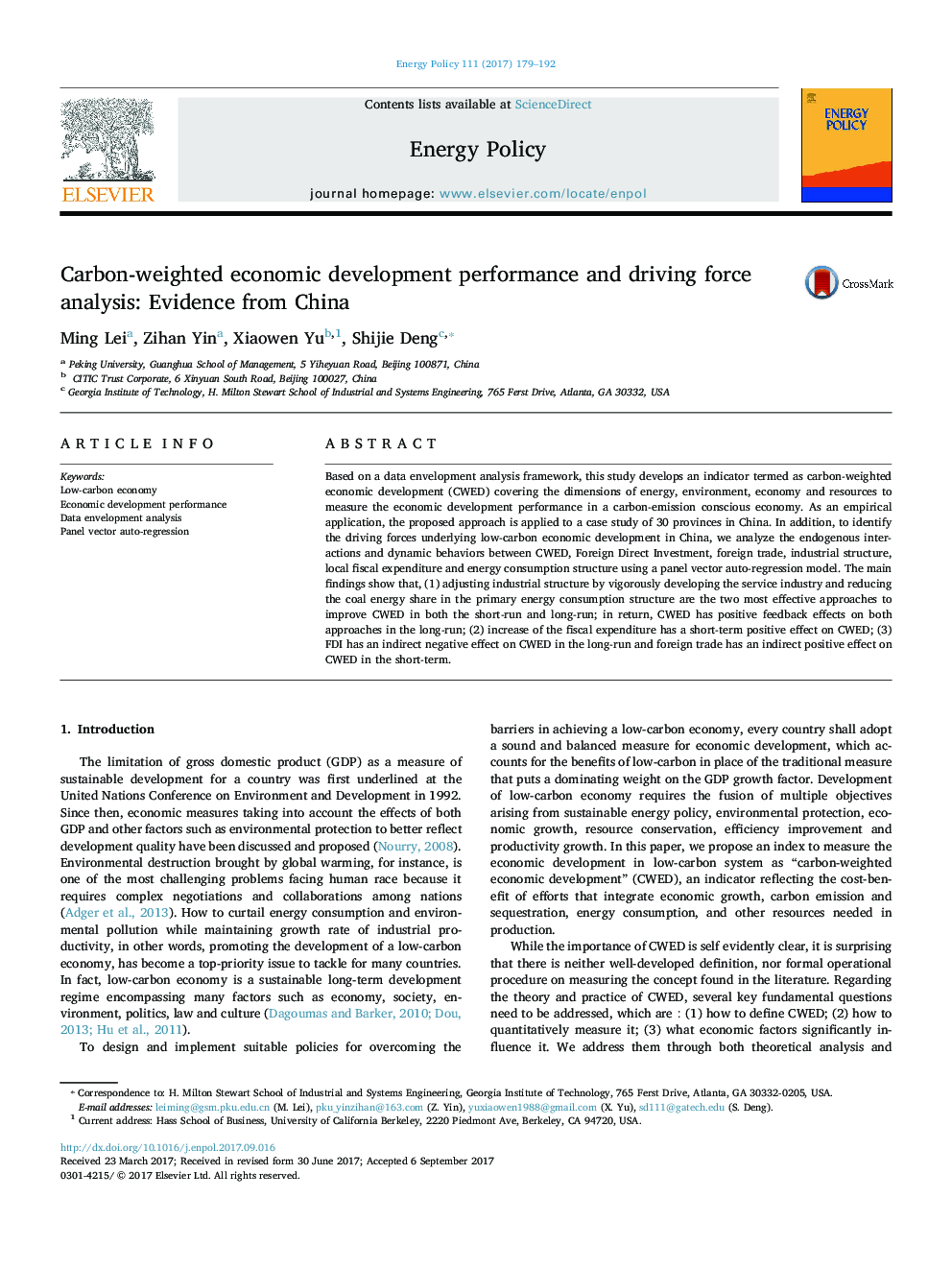| Article ID | Journal | Published Year | Pages | File Type |
|---|---|---|---|---|
| 5105516 | Energy Policy | 2017 | 14 Pages |
Abstract
Based on a data envelopment analysis framework, this study develops an indicator termed as carbon-weighted economic development (CWED) covering the dimensions of energy, environment, economy and resources to measure the economic development performance in a carbon-emission conscious economy. As an empirical application, the proposed approach is applied to a case study of 30 provinces in China. In addition, to identify the driving forces underlying low-carbon economic development in China, we analyze the endogenous interactions and dynamic behaviors between CWED, Foreign Direct Investment, foreign trade, industrial structure, local fiscal expenditure and energy consumption structure using a panel vector auto-regression model. The main findings show that, (1) adjusting industrial structure by vigorously developing the service industry and reducing the coal energy share in the primary energy consumption structure are the two most effective approaches to improve CWED in both the short-run and long-run; in return, CWED has positive feedback effects on both approaches in the long-run; (2) increase of the fiscal expenditure has a short-term positive effect on CWED; (3) FDI has an indirect negative effect on CWED in the long-run and foreign trade has an indirect positive effect on CWED in the short-term.
Related Topics
Physical Sciences and Engineering
Energy
Energy Engineering and Power Technology
Authors
Ming Lei, Zihan Yin, Xiaowen Yu, Shijie Deng,
